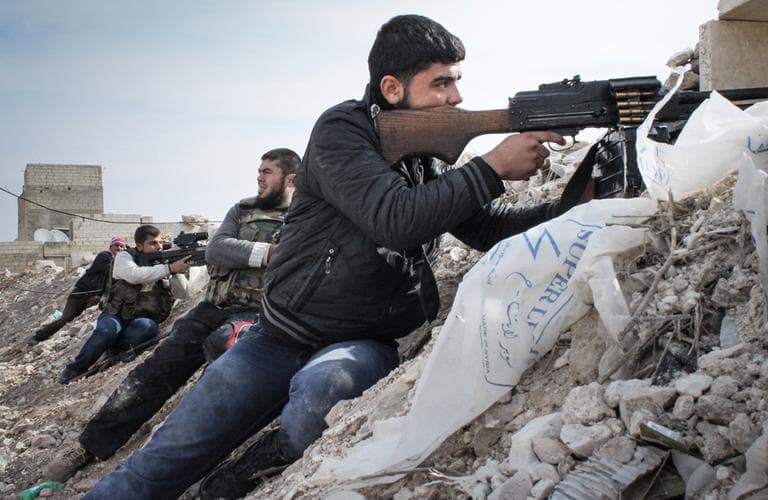Advertisement
Syrian Americans Press For Regime Change
Resume

Muna Jondy is a 37-year-old immigration lawyer in Flint, Mich. who participated in the recent birth of the "National Coalition for Syrian Revolutionary and Opposition Forces," which was intended to replace the largely discredited exile group that she is a member of, the Syrian National Council.
Her father is surgeon Dr. Abdelmajid Jondy, who recently traveled to his native Syria to help conduct surgeries in war-ravaged opposition strongholds.
They both support regime change in Syria.
But Syria expert and University of Oklahoma professor Joshua Landis says that the new Syrian opposition group will face the same challenge as the old group: getting the many militia groups fighting inside Syria to listen to them.
____Interview Highlights____
Dr. Abdelmajid Jondy on what it was like to return to Syria:
"For me it was great news to get in and see free Syria. But the sad thing I find everything been destroyed - infrastructure, the school, hospitals, even bakeries. There's nothing really important that was not destroyed. It is very unfortunate to see like this. Everybody I touch lost some loved one."
Muna Jondy on worries about al-Qaida involvement with opposition forces:
"I think that those are legitimate concerns. And there is a percentage - it's still a low percentage, but it is a percentage none the less - that is getting its funding from those types of sources. And we've been advocating to our government, 'Listen, you know that they are going to get the arms, you know that they're going to continue on this path. Why don't we be the ones to help train, direct and make this happen quickly.'"
Joshua Landis on the challenges facing the new Syrian opposition coalition:
"The problem will be whether these civilian exiles can in any way take control of the military war that's going on on the ground. There are dozens of militias, some of them quite big and powerful, and it's not clear that they're going to listen to these foreigners - or these people in exile who are civilians."
How involved do you think the U.S. should be? Let us know on our Facebook page.
Guests:
- Muna Jondy, Syrian-American immigration lawyer and member of the Syrian National Council and United for a Free Syria.
- Dr. Abdelmajid Jondy, surgeon in Flint, Mich. who grew up in Syria.
- Joshua Landis, Syria expert and professor at the University of Oklahoma. He tweets @joshua_landis.
This segment aired on November 19, 2012.